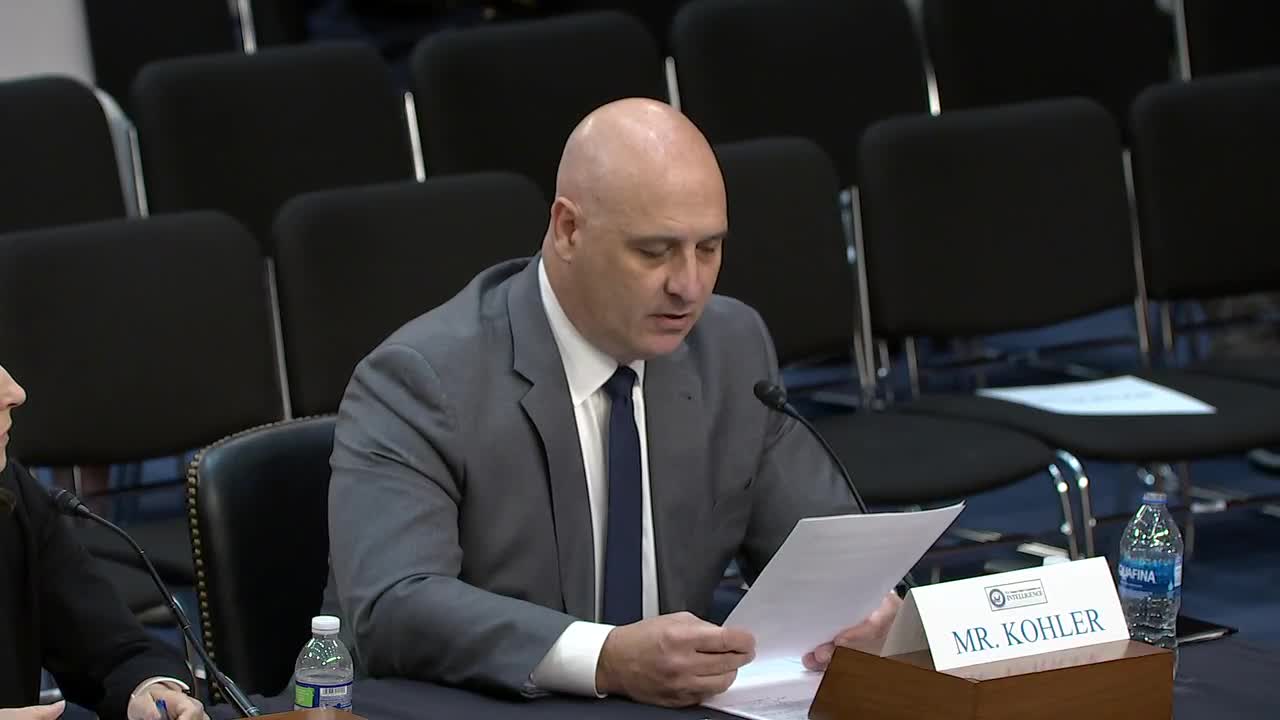Senators and witnesses say PRC transnational repression targets Chinese‑American diaspora; FBI numbers cited
Get AI-powered insights, summaries, and transcripts
Subscribe
Summary
Witnesses described an increase in transnational repression—harassment, threats and covert surveillance—directed at Chinese‑American dissidents, journalists and candidates; former FBI officials said China‑related counterintelligence investigations now make up roughly half of the bureau’s caseload.
Adam Koehler, a former assistant director in the FBI’s counterintelligence division now in the private sector, told the Senate Select Committee on Intelligence that the FBI treats transnational repression as a top priority and that China‑related investigations “now make up approximately 50% of all counterintelligence work, well over 2,000 active investigations.”
Koehler and other witnesses described examples of coercive tactics used against U.S. residents: harassment via fake social media accounts, threats aimed at family members in China to induce return, and the operation of undeclared “overseas police stations” that were used to monitor and intimidate dissidents. Senators recited several recent criminal cases brought by U.S. authorities alleging acts such as acting as an agent of the PRC and operating covert police‑style stations on foreign soil.
Koehler recounted an account from the bureau’s community outreach after an arrest: agents asked coworkers and neighbors about reporting, and the response was, “what took you so long?” He said the reaction illustrated three problems: community members did not know how or whom to call; they were afraid to contact law enforcement; or they feared reprisals from authorities in China. Koehler said the FBI must redouble outreach so victims feel safe reporting incidents.
Witnesses also described how PRC actors exploit diaspora platforms and private messaging to surveil and silence critics. Sarah Cook and others cited cases in which Chinese‑language media and some diaspora users self‑censor over concerns about economic reprisals or censorship, and described reports alleging platform‑level shadow‑banning or account restrictions that affect dissident voices.
Committee members asked whether U.S. law adequately covers these activities. Koehler and others said gaps exist: some forms of transnational repression fall into legal grey areas and are not currently criminalized, such as private surveillance, tracking and certain types of coercive harassment conducted through third parties. Koehler recommended transnational repression legislation that includes enhanced penalties for criminal acts on behalf of foreign governments, bans on certain surveillance activities when conducted at the direction of foreign states, and targeted sanctions on foreign officials responsible for such operations.
Members and witnesses urged improved outreach to diaspora communities, clearer reporting channels, and preservation of civil liberties while expanding protections for people targeted because of their views or family ties to China.
